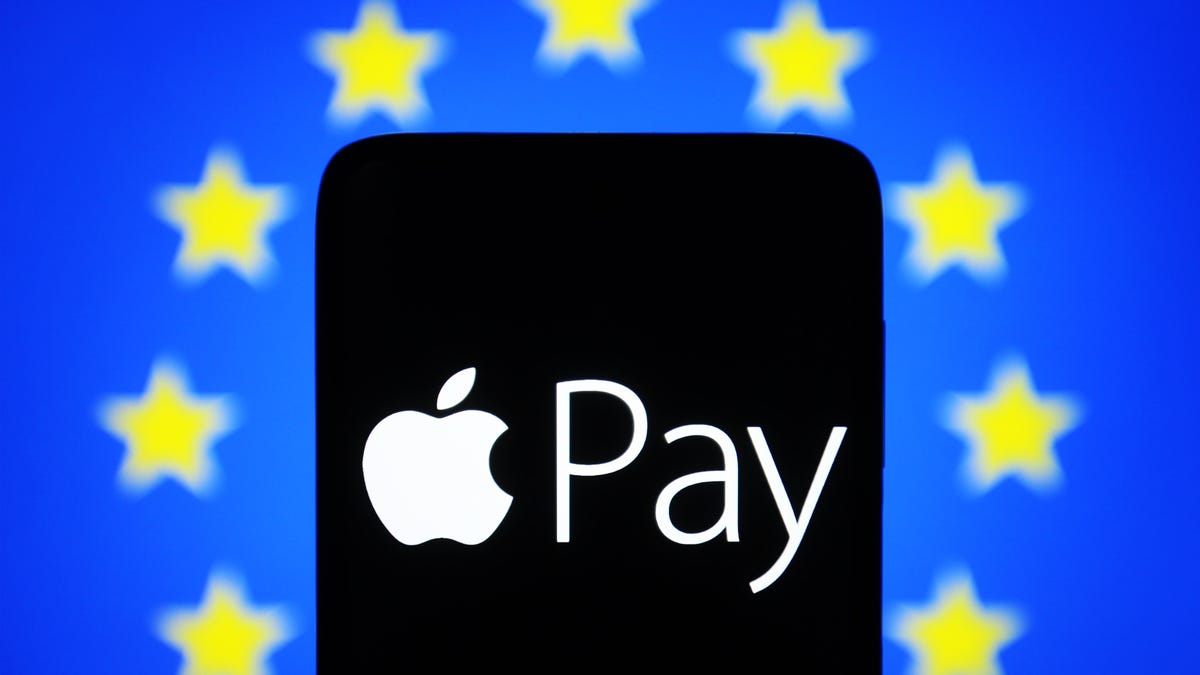Apple has to share its Apple Pay tech with rivals, Europe says

European Union regulators made commitments from Apple legally binding under EU antitrust rules, forcing the tech giant to share its “tap to pay” technology with rivals.
A four-year investigation by the European Commission concluded that Apple “abused its dominant position” in the smartphone and mobile wallet market by refusing to share the technology behind Apple Pay, the regulatory body said Thursday.
Based on the probe’s findings, the Commission said it believes that Apple’s refusal to share the tech “excluded Apple Pay’s rivals from the market and led to less innovation and choice for iPhone mobile wallets users.”
But Apple will now have to share the so-called Near-Field-Communication (NFC) hardware and software, better known as “tap and go,” with third-party digital wallet providers for free. This will ultimately allow non-iOS devices to make mobile payments in-stores, and will give iPhone users the ability to use other digital wallets besides Apple Pay. iPhone users will also be able to set the a third-party wallet as their default app for in-store payments, including functionalities like automatically opening their default payment app using the device at “tap to pay” readers.
Margrethe Vestager, executive vice president of the European Commission in charge of competition policy, said in a statement, that the decision “opens up competition in this crucial sector.”
“From now on, competitors will be able to effectively compete with Apple Pay for mobile payments with the iPhone in shops,” she said. “So consumers will have a wider range of safe and innovative mobile wallets to choose from.”
With this decision, EU antitrust regulators finally brought to an close an investigation they launched in June 2020.
The commitments made by Apple will remain in force for ten years and apply throughout the European Economic Area, which includes all 27 EU countries plus Iceland, Liechtenstein, and Norway.
Apple’s market practices have come under the microscope in the EU, as antitrust regulators have cracked down on practices they deem anti-competitive within the tech space. Late last month, the Commission accused Apple of violating the E.U.’s Digital Markets Act (DMA). The regulator said Apple’s App Store prevented app developers from freely directing consumers to alternative ways to make purchases, and that its fees for facilitating purchases through the App Store go beyond what is “strictly necessary.”
If the Commission concludes that Apple broke that rule, the company could be fined as much as 10% of its worldwide revenue. Any repeated violations could result in fines as big as 20%.
Related
EU denies picking on US tech giants, says US also…
BRUSSELS (Reuters) - Europe's new tech rule aims to keep digital markets
€450M to drive green data infrastructure, the next startup hub,…
This week we tracked more than 70 tech funding deals worth over €1.3 billion, and over 5 exits, M&A transactions, rumours, an
European tech sector poised for stronger 2025, says Monument Group;…
Let’s kick things off with tech! Monument Group’s Zac Williams expects a big spike in European technology deals in 2025, as the region offers more appealing
Women still marginalised in Europe’s Tech Ecosystem
European startups founded or co-founded by women raised €10.2B in 2024 across nearly 2,000 transactions, according to Pitchbook’s latest study. This repr










